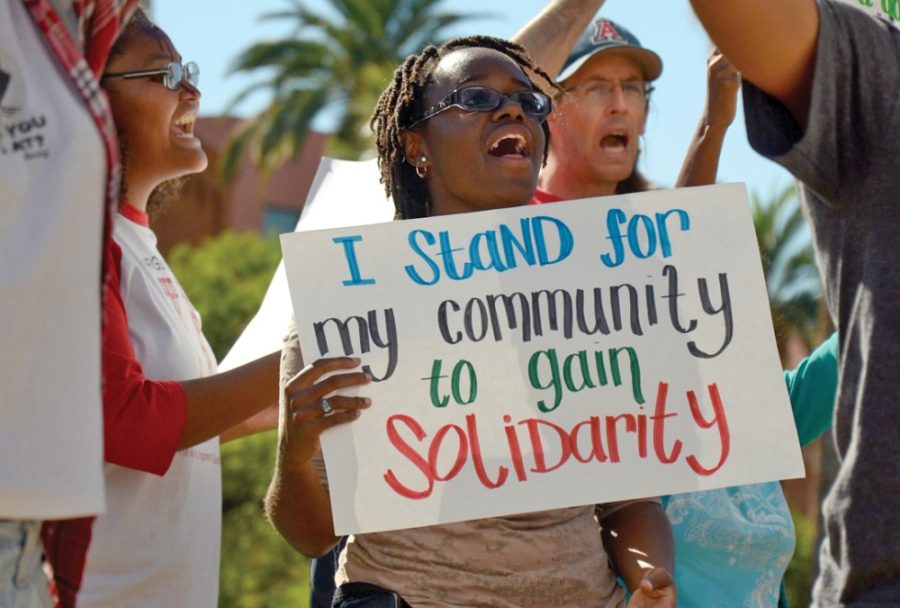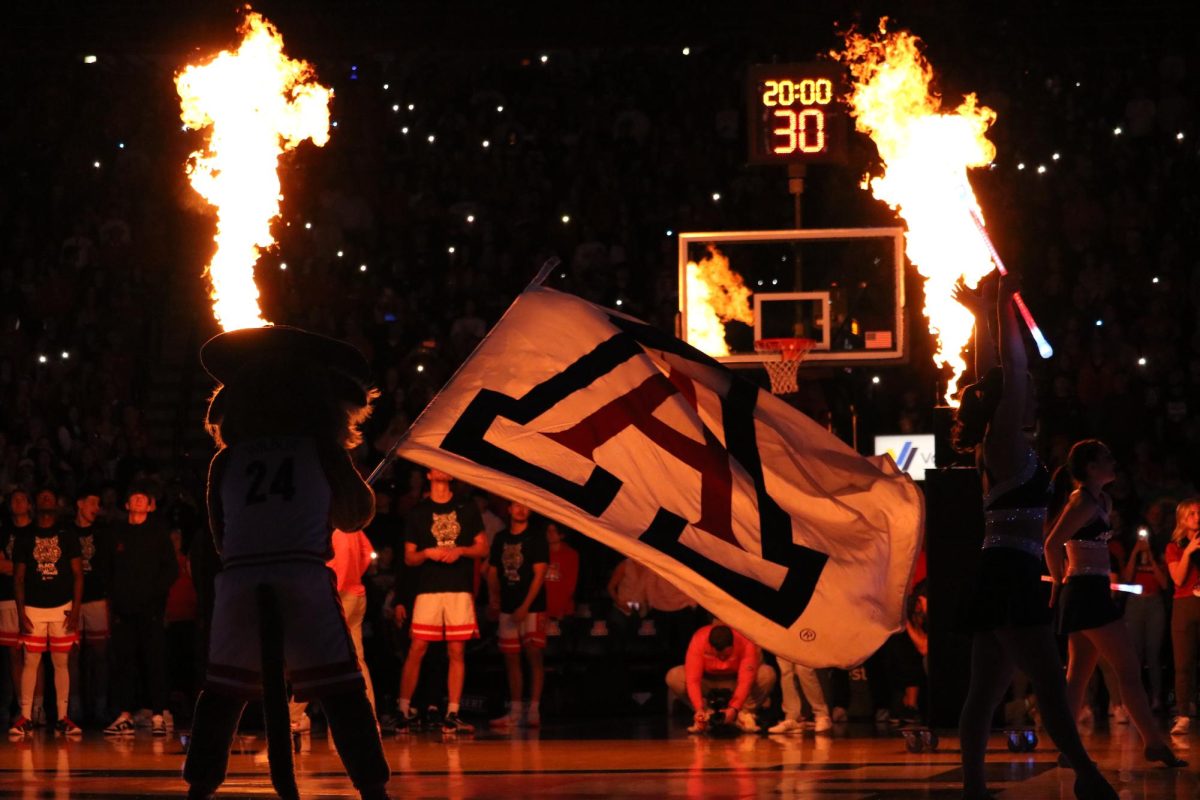There is no topic more divisive on the college campuses of America than that of free speech. While freedom of speech has always been a subject of discussion and concern, there are moments when this attempt to understand the boundaries of our liberties becomes distracted by violence and fraught with dissent.
Former Supreme Court Justice Benjamin Cardozo called the right to free speech, “the matrix, the indispensable condition, of nearly every other form of freedom.” And to the concept of “being American,” this notion of sacrosanct speech is juggled between our desire for a safer and more stable union with our hope for a more equal and just one.
Previously, the greatest threats to this right to expression came from the former, rather than latter, concern. As early as 1798, the Alien and Sedition acts prohibited the publishing of “malicious writings against the government,” in anticipation of a coming war with France. By World War I, freedom of speech was being regularly curtailed in times of crisis in an attempt to preserve the safety of the nation — at the cost of the rights of its citizens.
RELATED: Opinion: Fear mongering shouldn’t dominate politics
Over the past several hundred years, since the birth of our nation, the definition of speech has been radically and irrevocably expanded, with its current form now a protection from the whims of the majority, rather than a freedom to express that which is popular. As put by the American Civil Liberties Union, “Constitutional rights must apply to even the most unpopular groups if they’re going to be preserved for everyone.” The rights that make up the backbone of the United States are not to protect the majority alone, but to ensure the protection of the minority from those who wish to silence them.
But while the definition of rights has undergone a remarkable expansion, it’s now being threatened from a completely different angle. Rather than arguing that unpopular speech acts as a destabilizing force against the nation, contemporary arguments are just as often made that unpopular speech actually isn’t speech at all, and is instead a form of violence.
In an article by Reed McConnell in the school newspaper The Harvard Crimson, a defense of college bans on hate speech was made by saying that people who express those opinions are “committing an act of violence,” and using that violence to “oppress and marginalize” those around them. He is not incorrect in arguing that people can feel marginalized by the opinions of those around them. This can be experienced by being in the room with someone who hates and disrespects you. But that speech is not violence, no more than Reed McConnell arguing for the limiting of hate speech is an act of violence on hate groups.
It’s the right of every citizen to contribute to the public discussion, even if they are so far outside of the mainstream as to be seen as radical and wrong to listen to. It’s as dangerous as it is easy to simply decide which groups are actually contributing and which aren’t, as it allows the majority to pick and choose opinions with which are comfortable to argue.
RELATED: Protests crucial to politics, divisive without empathy
It’s this trend to view free speech as a floodgate of hatred and violence that encourages students to deem an appropriate response to unpopular speech to be actual physical acts of violence. A study published by the Brookings think tank wrote that 19 percent of all respondents viewed “committing violence to silence speech” that they found extremely offensive to be justified. This percentage of students willing to physically assault a person with whom they disagree is so shockingly high as to immediately command the attention of any proponent of the idea that the greatest threat to public discourse is negative speech, if only for a moment.
While this report has been challenged on the grounds of it being an “opt in” survey, meaning that the actual percentage may be inaccurately high or low, the existence of a population willing to respond to words with fists is too surprisingly high to ignore. The now common occurrence of protests, riots and outright assault in response to unpopular speakers and student groups is evident of this time of trouble on our campuses, where it seems every day is a reminder of the riots at UC Berkeley.
The solution to our crisis of confidence is not violence, regardless of which side of the aisle you stand on. The trouble in our colleges is not that we have forgotten what it means to be American, but what it means to listen. The anger and injustice comes from the breakdown in communication, the sense of armed camps being the only way to divide, and the idea that all opinions are ironclad and impossible to challenge.
We are not a college of liberals and conservatives preparing for war after graduation, and campuses are not the place for confirming what you already feel in your heart. We become stronger the more we argue and evolve, and we stagnate and fall apart once we stop listening to those we disagree with.
— Alec Scott is a sophomore Political Science Major studying International Relations
Follow Alec Scott on Twitter









